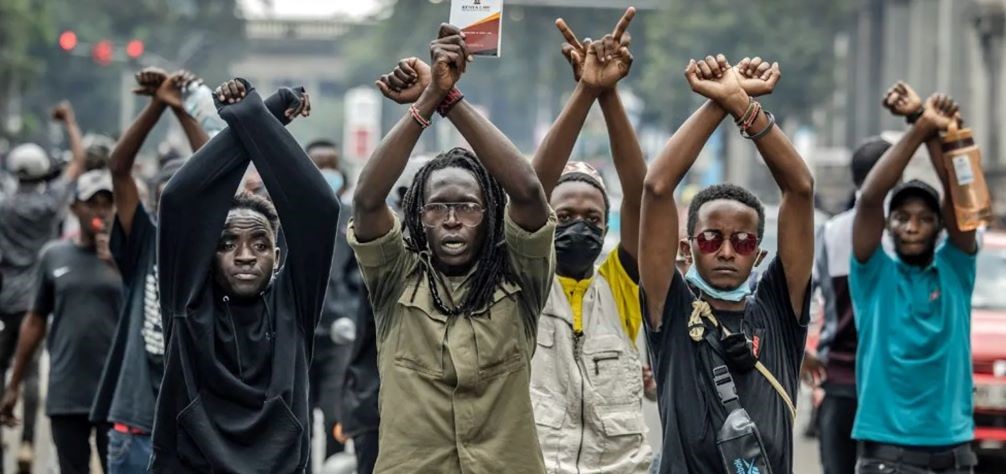(2 Minutes Read)
The streets of Nairobi witnessed another day of unrest as Kenyan police deployed tear gas and rubber bullets to disperse groups of protesters. This comes just 48 hours after violent clashes that left at least 23 people dead, according to civil society organizations. The previous violence prompted President William Ruto to withdraw the controversial finance bill.
The streets of Nairobi witnessed another day of unrest as Kenyan police deployed tear gas and rubber bullets to disperse groups of protesters. This comes just 48 hours after violent clashes that left at least 23 people dead, according to civil society organizations. The previous violence prompted President William Ruto to withdraw the controversial finance bill. Despite President Ruto’s announcement of the bill’s withdrawal on June 26, calls for mobilization persisted, reflecting deep-seated discontent. The finance bill had sparked intense protests over the past ten days, reaching a bloody climax on June 25 when demonstrations were met with severe police repression.
Some Kenyans chose to take to the streets once again, although the turnout was modest. The capital saw a dramatic deployment of security forces from early morning, aiming to prevent large-scale gatherings. In downtown Nairobi, around a hundred demonstrators convened but were swiftly dispersed by police using tear gas and rubber bullets. The situation has evolved into a cat-and-mouse game: protesters regroup, police chase them away, they regroup elsewhere, and the cycle repeats. Protesters accused President Ruto of downplaying the death toll from police violence; Ruto reported six fatalities, while civil society claims 23. Moreover, the demonstrators doubt the sincerity of Ruto’s promise to withdraw the bill. According to Kenyan law, the president cannot unilaterally revoke such measures; the bill must be sent back to Parliament, a process that worries his opponents.
Read Also:
https://trendsnafrica.com/nation-wide-agitations-continue-in-kenya-over-new-levies/
These events underscore the ongoing tensions and the fragile relationship between the government and its citizens. As Nairobi remains on the edge, the path to resolving these deep-rooted issues seems fraught with challenges.





